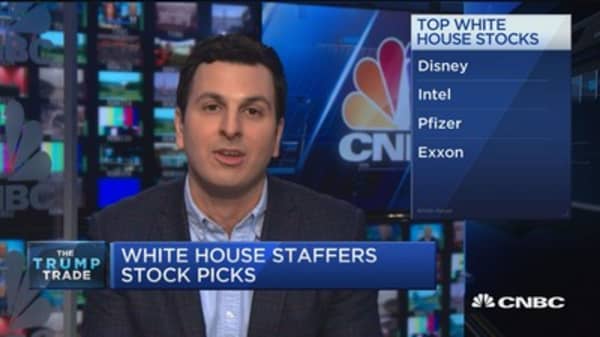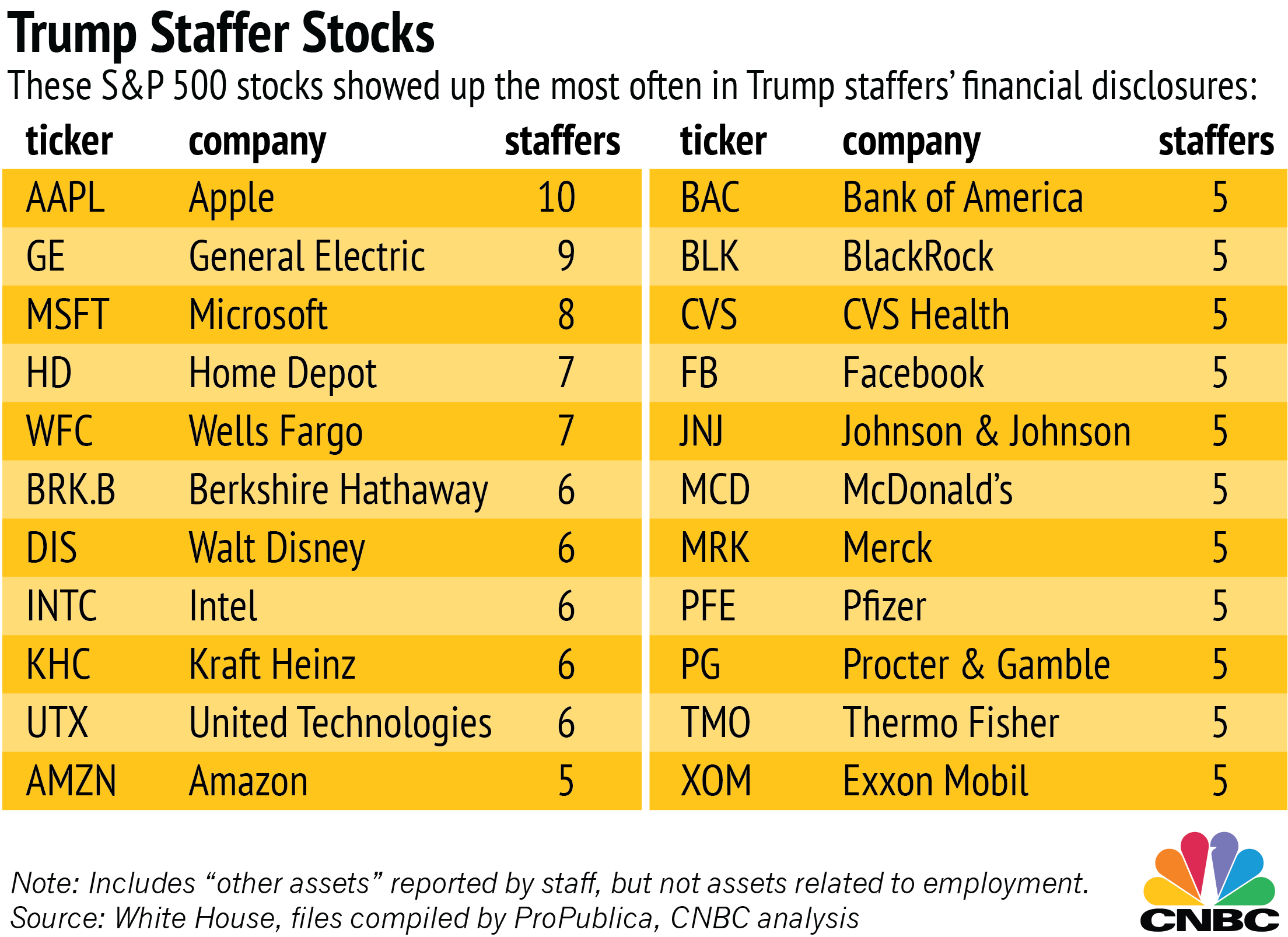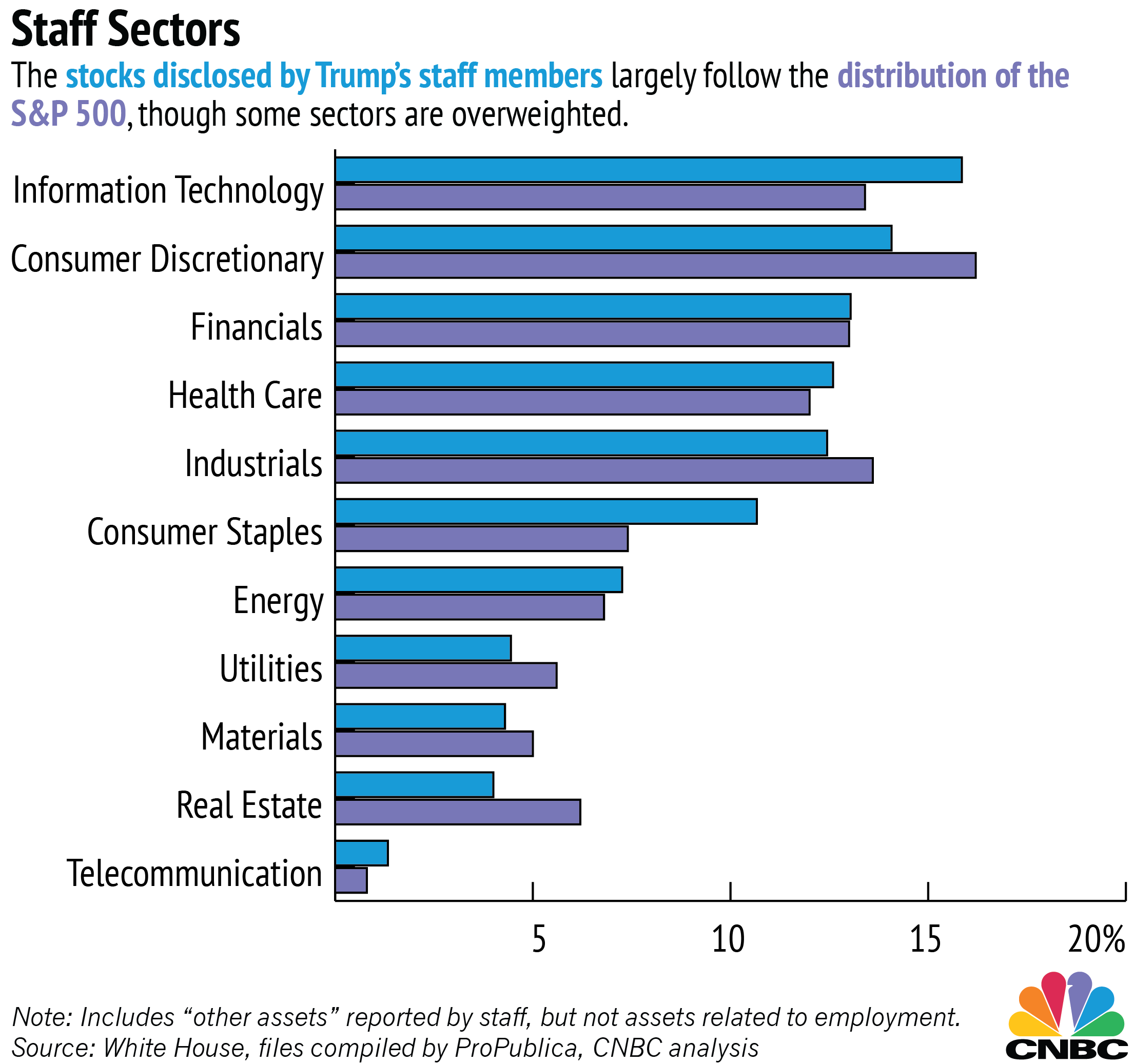Stocks that are commonly held as part of a broad investment portfolio can be considered conflicts of interest in the hands of powerful public servants. Other holdings could simply be considered unseemly.
At least three staffers invested in Rockwell Automation, which produces equipment and software to help factories increase their use of robotic workers — possibly a liability in an administration that has emphasized saving manufacturing jobs. And Liddell had up to $15,000 invested in Herbalife, the nutritional supplement company that's been the focus of a heated investor battle for years. The company was cleared by the Federal Trade Commission last summer of allegations that it operated a pyramid scheme.
Some of the biggest companies in the country are government contractors, and are well represented in White House staffers' portfolios. Contractors could be of particular interest to investors looking to trade based on the administration because their revenue is often highly dependent on decisions made in Washington.
All the big defense firms can be found in the financial disclosures, and many paid out healthy dividends last year. Liddell is also invested in General Dynamics, the defense contractor that produces missile and marine systems for the government, among other things. Both Liddell and Director of Legislative Affairs Marc Short owned shares in Lockheed Martin.
At least four White House staff members owned shares in the defense contractor United Technologies. The company also is the parent of air conditioner manufacturer Carrier Corp, which made news in November when it was the first of many companies to attract Trump's wrath after it made plans to move jobs to Mexico. Trump announced that 1,100 of those jobs would be saved, though that number was later revised down to 800 jobs.
The filings do not indicate all of the stocks that will be divested as part of standard ethics screening. The White House said in a statement on March 31 that the disclosures were a snapshot in time and said reporters would have to seek out additional information on retained assets in the future.
"These are incredibly successful individuals, very high net worth, very sophisticated, complex asset structures, numerous sub-LLCs, trusts and other items, all of which have to be worked through," the statement said. "And for those who are fans of 'Spinal Tap,' these were the 'elevens' out of ten on the scale."







